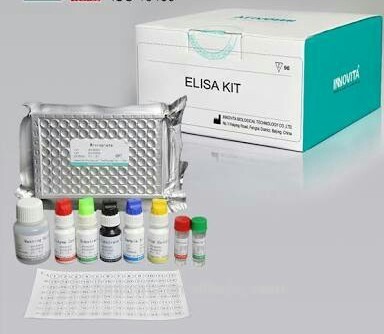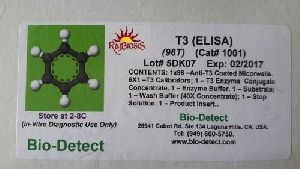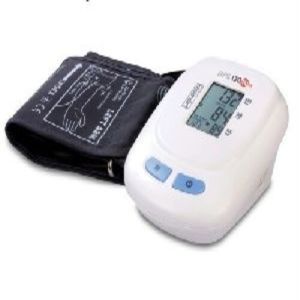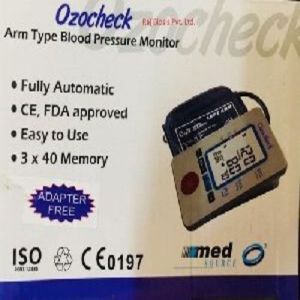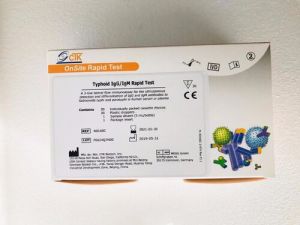Ajmer Jaipur Expressway, Rajasthan
- GST NO. : 08AAECR4942D1ZG
View Mobile Number
rajbiosis@yahoo.in
13,000.00 / Box
| Business Type | Manufacturer, Exporter, Supplier, Retailer, Trader, Distributor, Importer |
| Shelf Life | 12 Months |
| Packaging Type | Box |
| Usage/Application | Hospital |
| Click to view more | |
Product Details
Form
Tablet
Method
Elisa
Packaging Size
50 Tablet
Material
Plastic
What is Vitamin D?
- Vitamin D, often called the “sunshine vitamin,” is an important nutrient. Its active form, called calcitriol, behaves like a hormone in the body. The body can produce 10,000 IU or more of vitamin D with little as 10 to 15 minutes of exposure to summer sunlight.
- Vitamin D plays a crucial role in supporting and maintaining bone health. There are few natural food sources that contain vitamin D. Food manufacturers began fortifying milk and other products with vitamin D decades ago, aimed to wipe out rickets, a childhood bone disease.
- Receptors for this important hormone are found in virtually every type of cell and tissue in the body. Receptors work like locks: the lock turns when the right key is inserted, prompting the cell to act in a certain way. Evidence shows that people with higher levels of vitamin D may live longer. Studies also suggest that a majority of Americans have insufficient or deficient levels of vitamin D.
Why Do You Need Vitamin D?
- The presence of vitamin D receptors throughout the body hints at the importance of the vitamin. Research shows that vitamin D plays a crucial role in the health of the immune system, brain, heart and blood vessels, among other organs and systems.
- Many doctors now monitor their patients’ vitamin D levels and prescribe supplemental vitamin D when levels are too low. A lack of vitamin D may increase your risk of developing numerous diseases and conditions.
- Autoimmune diseases—such as type 1 diabetes, multiple sclerosis, and rheumatoid arthritis—may be linked to a vitamin D deficiency. Autoimmune diseases occur when the immune system attacks the body’s own tissues. Too little vitamin D has been linked to poor immune system function.
- Vitamin D deficiency is also linked to a risk for type 2 diabetes, osteoporosis (a condition that results in brittle bones), heart disease, mood disorders, and even certain types of cancer. The active form of vitamin D helps control chronic inflammation. Ongoing inflammation has been linked to diseases such as hardening of the arteries (atherosclerosis), arthritis (painful, inflamed joints), and even cancer.
Supplementation Recommendations
- Vitamin D may be taken as a supplement. Two forms are available: vitamin D3 and vitamin D2. Vitamin D3 is preferable, as it is better absorbed when taken by mouth.
- Current government recommended dietary allowances for vitamin D range from 400 IU to 800 IU daily. Many experts argue that higher daily intakes than what’s recommended are required to achieve better health outcomes. Some experts even recommend taking 2,000 to 7,000 IU of vitamin D3 everyday.
Vitamin D Deficiency
The following factors can affect your vitamin D levels:
- Exposure to sunlight
- The use of sunscreens
- Body mass
- Skin color
- Diet
- People with dark skin don’t make vitamin D as easily as light-skinned people when exposed to sunlight.
Vitamin D dissolves in fat, and is stored in fat cells. Overweight people tend to have more vitamin D stored in fat rather than circulating in the blood. They may require higher doses of vitamin D3 to maintain optimal serum levels.
Looking for "Vitamin D Biodetect Elisa Kit" ?
Box
Explore More Products


